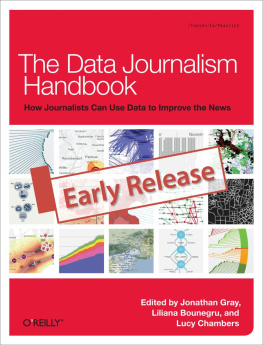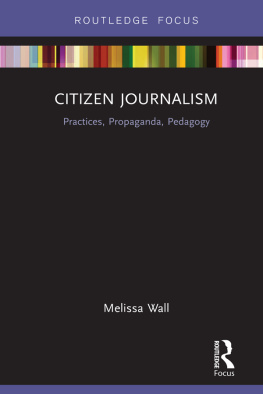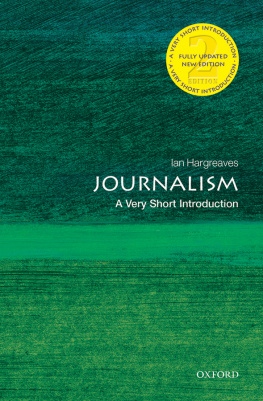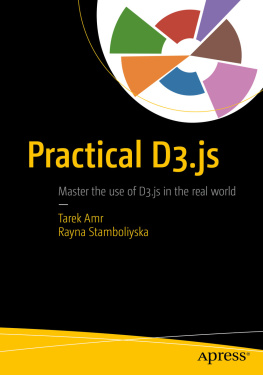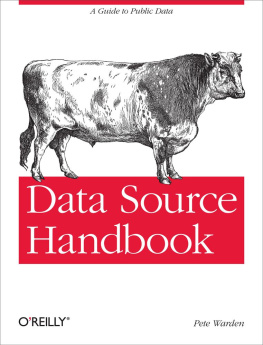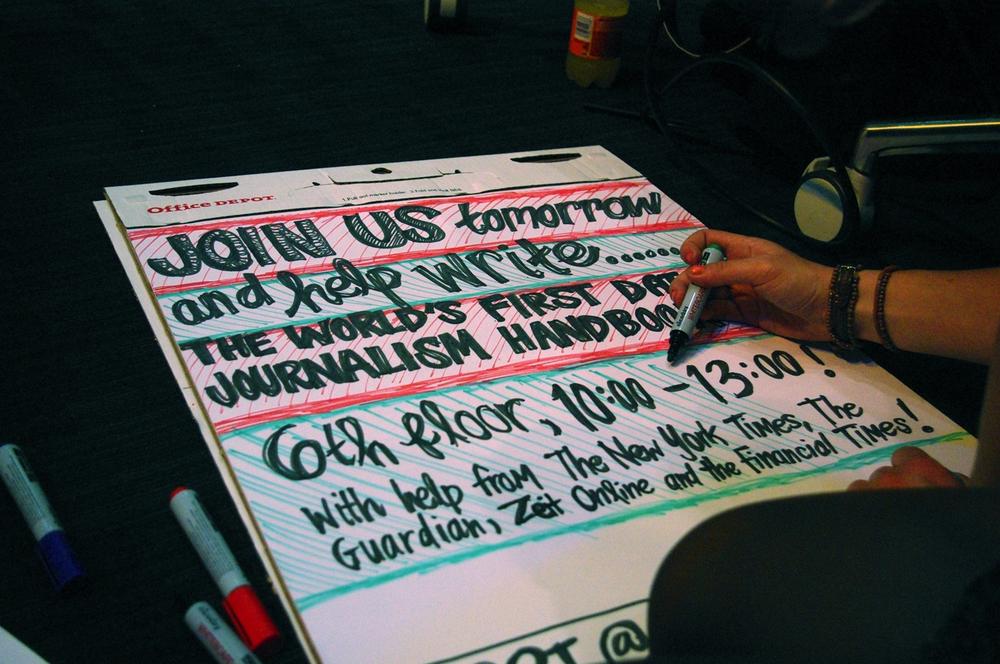Jonathan Gray - The Data Journalism Handbook
Here you can read online Jonathan Gray - The Data Journalism Handbook full text of the book (entire story) in english for free. Download pdf and epub, get meaning, cover and reviews about this ebook. year: 2012, publisher: OReilly Media, genre: Art / Science. Description of the work, (preface) as well as reviews are available. Best literature library LitArk.com created for fans of good reading and offers a wide selection of genres:
Romance novel
Science fiction
Adventure
Detective
Science
History
Home and family
Prose
Art
Politics
Computer
Non-fiction
Religion
Business
Children
Humor
Choose a favorite category and find really read worthwhile books. Enjoy immersion in the world of imagination, feel the emotions of the characters or learn something new for yourself, make an fascinating discovery.
- Book:The Data Journalism Handbook
- Author:
- Publisher:OReilly Media
- Genre:
- Year:2012
- Rating:5 / 5
- Favourites:Add to favourites
- Your mark:
The Data Journalism Handbook: summary, description and annotation
We offer to read an annotation, description, summary or preface (depends on what the author of the book "The Data Journalism Handbook" wrote himself). If you haven't found the necessary information about the book — write in the comments, we will try to find it.
When you combine the sheer scale and range of digital information now available with a journalists nose for news and her ability to tell a compelling story, a new world of possibility opens up. With The Data Journalism Handbook, youll explore the potential, limits, and applied uses of this new and fascinating field.
This valuable handbook has attracted scores of contributors since the European Journalism Centre and the Open Knowledge Foundation launched the project at MozFest 2011. Through a collection of tips and techniques from leading journalists, professors, software developers, and data analysts, youll learn how data can be either the source of data journalism or a tool with which the story is toldor both.
- Examine the use of data journalism at the BBC, the Chicago Tribune, the Guardian, and other news organizations
- Explore in-depth case studies on elections, riots, school performance, and corruption
- Learn how to find data from the Web, through freedom of information laws, and by crowd sourcing
- Extract information from raw data with tips for working with numbers and statistics and using data visualization
- Deliver data through infographics, news apps, open data platforms, and download links
Jonathan Gray: author's other books
Who wrote The Data Journalism Handbook? Find out the surname, the name of the author of the book and a list of all author's works by series.

